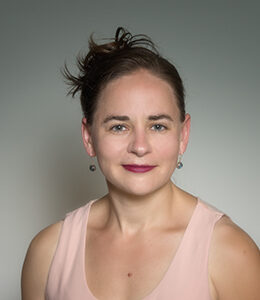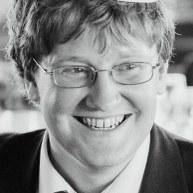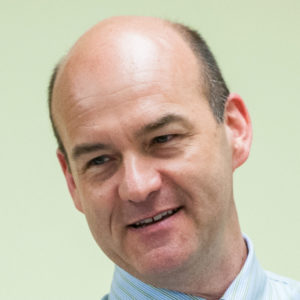Samuel 1 & 2
Explore one of the most pivotal transitions in Biblical history, tracing Israel’s path from tribal society to unified monarchy.
Thursdays | Oct. 9, 16, 23, & 30
Online
Mary Shelley’s Frankenstein (1818/1831, subtitled The Modern Prometheus) tells the story of Victor Frankenstein, a young scientist who animates a creature, then recoils from what he’s made. In Frankenstein and his “monster,” readers experience the perils of naïve ambition, the moral costs of creation, and the descent from innocence into hatred in those deprived of family and friendship.
This seminar will consider Frankenstein as a Gothic–Romantic and early science fiction text that reflects on modern science, nature, and the ambitions of enlightenment; human nature and the need for education, family, community, and responsibility; and the catastrophe of unleashing forces beyond our control.
Prof. McGrath on Sacrificial Politics & Sacred Victims
This course is offered by Humanities at Hertog. It takes place weekly on Thursdays, via Zoom, from 6 PM to 8 PM ET. Fellows will receive a $150 Amazon Bookshelf voucher contingent upon participation in the course and completion of a brief response paper. All course materials will be provided.

Molly Brigid McGrath is a professor of philosophy at Assumption University. She specializes in phenomenology, social ontology, and political philosophy, with particular interests in the works of Husserl, Aristotle, Searle, and classic texts by Plato, Aquinas, and Montesquieu.

Molly Brigid McGrath is a professor of philosophy at Assumption University. She specializes in phenomenology, social ontology, and political philosophy, with particular interests in the works of Husserl, Aristotle, Searle, and classic texts by Plato, Aquinas, and Montesquieu. She has previously been involved with the Intercollegiate Studies Institute’s summer honors program. McGrath recently published a philosophical inquiry into the origins of identity politics titled “The Authority of the Sacred Victim.” She also contributes short analytical pieces that delve into philosophical interpretations of films and TV shows including “The Ballad of Buster Scruggs, a Frontier Anthology,” “Wonder Woman: A Movie About Men,” and “Relativists Get Their Favorite Movie Wrong.”
Text:
Readings:
Discussion Questions:
Readings:
Discussion Questions:
Readings:
Discussion Questions:
Readings:
Discussion Questions:

Gregory McBrayer
Greg McBrayer is Interim Provost at Ashland University and a political science professor specializing in political philosophy and international relations. He has published widely, co-authored and edited works on Plato and Xenophon, and previously held positions at Morehead State, Emory, and Gettysburg College.

Samuel Garrett Zeitlin
Samuel Zeitlin is Lecturer in Modern Intellectual History at University College London, specializing in political thought, international relations, and the history of philosophy.

Christopher Scalia
Christopher J. Scalia is a senior fellow in the Social, Cultural, and Constitutional Studies department at the American Enterprise Institute, where he focuses on literature, culture, and higher education. Prior to his role at AEI, Dr. Scalia was an English professor with a specialty in 18th-century and early 19th-century British literature.

Tobin Craig
Tobin Craig is Associate Professor at Michigan State University. His studies focus on the intersection between modern political philosophy and modern science and technology. He is currently at work on a book length study of the unity of Francis Bacon’s scientific and political thought as well as a study of the place of technology in American political thought.

Robert C. Bartlett
Robert C. Bartlett is the Behrakis Professor of Hellenic Political Studies at Boston College. His principal area of research is classical political philosophy, with particular attention to the thinkers of ancient Hellas, including Thucydides, Plato, and Aristotle. He is the co-translator of a new edition of Aristotle’s Nicomachean Ethics.

Jacob Howland
Jacob Howland is McFarlin Professor of Philosophy Emeritus at the University of Tulsa. He has written about Plato, Aristotle, Xenophon, Kierkegaard, the Talmud, the Holocaust, ideological tyranny, and other subjects. His most recent book is Glaucon’s Fate: History, Myth, and Character in Plato’s Republic.

Flagg Taylor
Flagg Taylor is the Executive Director of the Center for Civics, Culture, & Society, at Miami University. His research specialty is in the history of political thought and American government, especially the question of executive power. He is Chair of the Academic Council of the Victims of Communism Memorial Foundation.